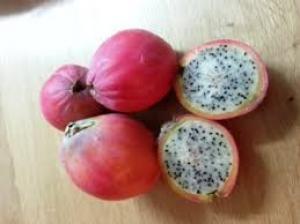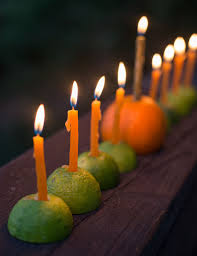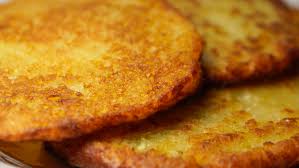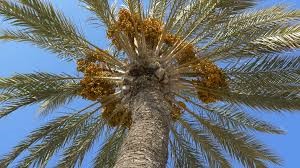How intriguing? Apparently, this is the local name of the Peruvian Apple, and it turns out that its Hebrew name is "desert apple".
You can actually guess why (or at least I'm trying to guess): it is round and reddish on the outside, like an apple, and it is very suitable for growing in the desert because it actually grows on a cactus – quite a surprise since the Peruvian Apple, that is, the Pitaya, has no thorns. Sometimes it has one big thorn at the base, where it was cut off the bush.
More surprisingly, although it is so easy to handle compared to prickly pears, aka sabra, it is less popular than the Sabra. No need for gloves or tricky tricks to get it off the bush, and it does not need to be isolated in the fruit basket for fear that any fruit that touches it may suddenly grow bristles that get stuck in the most unpleasant place in your palm, as soon as it is grabbed.
The Peruvian Apple arrived here from South America. When the Israelis were looking for fruits that grow on cactus in order to encourage and develop desert farming in Israel, they examined the Peruvian Apple and saw that it was good. Although it prefers a hot and dry climate, it can pleasurably grow almost anywhere in the country (perhaps because there is really no climate here other than "hot and dry"). Perhaps because it was a process that started back in 1985 (this requires some guided imagination: there was no internet nor smartphones – that is, somewhere in the dusty period when people used pens and pencils), the Peruvian Apple came to Israel by an In-gathering Operation: the seeds were gathered in California gardens by a delegate on behalf of the research team appointed to address the issue.
These were the seeds of the selected variety, after testing lots of cactus fruits from all over the world – also from South America, where it grows wild and has been eaten for a long time, but is less delicious. The seeds were brought to Israel, sprouted, planted in several experimental areas, and since then the process of growing the fruit in the country is monitored and improving. The cactus grows to an impressive height of about 3 meters, sometimes more, so if you want to grow it in your garden and enjoy the fruit, you should occasionally trim it to make it easier to pick the fruit. The flowers, cream colored, remain open for only one night and wilt.
Not everyone likes the taste of the Peruvian Apple – which is slightly sweet and slightly sour, and not distinct in any way. Probably the pests also share this opinion, since it is not eaten and not attacked by pests in Israel – and therefore it is actually "naturally" organic (it may still carry pesticides if it was grown in an inorganic farm, used to kill the weeds growing around it when the farmer does not want to be bothered spreading ground cover). The Peruviam Apple is also convenient for home use – it is available for a long period, all summer, and can be stored in the refrigerator for several weeks. Its sugar content is not high, so it is suitable for people who maintain their glycemic index and limit the amount of sugar in their food.
Like prickly pears (sabra), the fruit tastes better when it is cold. It can be peeled (it is very easy, make a cut lengthwise, and pull the peel off – it willingly exposes itself) and cut into segments, or cut in half and eaten with a spoon. Knowledgeable people claim that organic Peruvian Apple is delicious in a fruit salad (and it looks great in photos on a fruit platter), and when cold, it tastes and feels like sorbet. Why is it healthy? Because it contains vitamin C (about 48 mg per 100 grams of fruit), and also taurine – an important amino acid found in small amounts in most fruits and vegetables, and in significant amounts in cactus fruits.
Yours,
Maggie's Garden Team
Forecast:
In the ORGANIC vegetable baskets we expect (draft only):
Cucumber
Tomato
Lettuce
Potato
Eggplant
Onion
Parsley
Pumpkin
Spinach
The LARGE organic vegetable baskets also include:
Butternut squash
Cilantro
Carrot
In the ORGANIC fruit baskets:
Banana
Pears
Grapes
The LARGE organic fruit baskets also include:
Mango
Dates
New! New! The ORGANIC Green Basket:
Swiss chard
Celery
Kale
Green onion
Dill
A kind of lettuce
Mint
Sprouts












